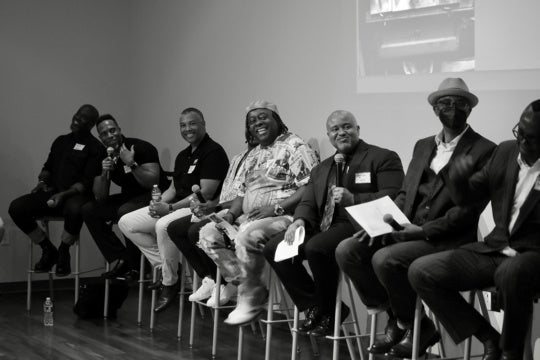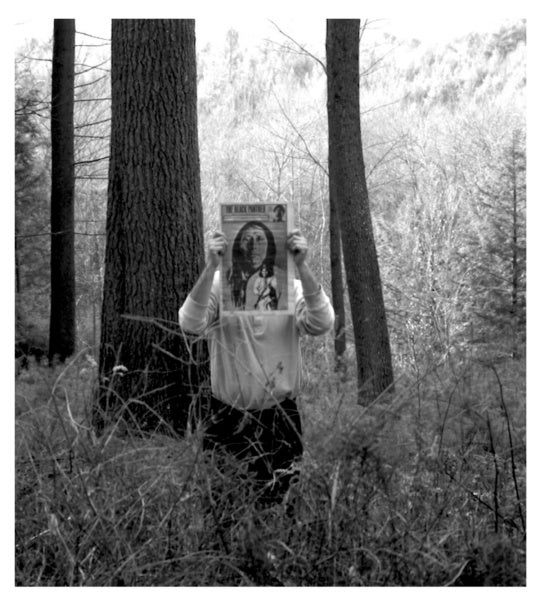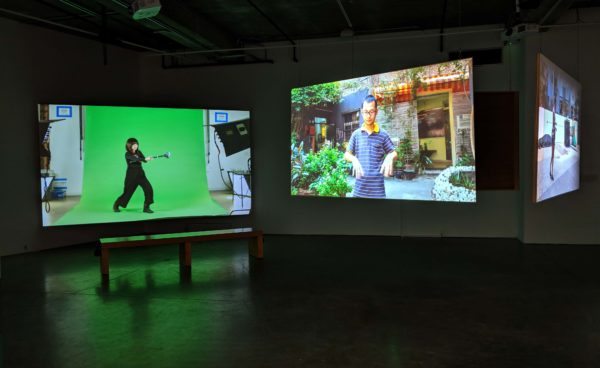
As new technologies continue to pervade our everyday lives, attendant policies must proactively protect users from exploitation. Interdisciplinary artist Xin Xin, an assistant professor in Media Design and Women’s Studies at the University of Georgia, works at the intersections of technology, labor, and identity. Their exhibition “Labor in a Single Shot,” on view in the Dodd Galleries at UGA’s Lamar Dodd School of Art through November 9, consisted of four works that consider the experiences of factory workers, as well as those of consumers who interact with corporately owned network applications.
“There are reflections on these issues and identities that live outside the limitation of our language, and that is what I use art to communicate,” Xin said via email. “I think that as a culture we often overlook the significance of integrating feeling and atmosphere into the demand of a better future. Instead we rush into turning feelings into words and numbers as a means to persuade the larger crowd. A lot of history and experience can be lost in this translation.”
During grad school at UCLA, Xin co-founded voidLab, an intersectional feminist collective dedicated to elevating the underrepresented voices of women, trans and queer people. Founded to nurture solidarity among the marginalized, voidLab provides a space for artists, designers, and technologists to express ideas that may be too nuanced to be readily understood or embraced by mainstream platforms.
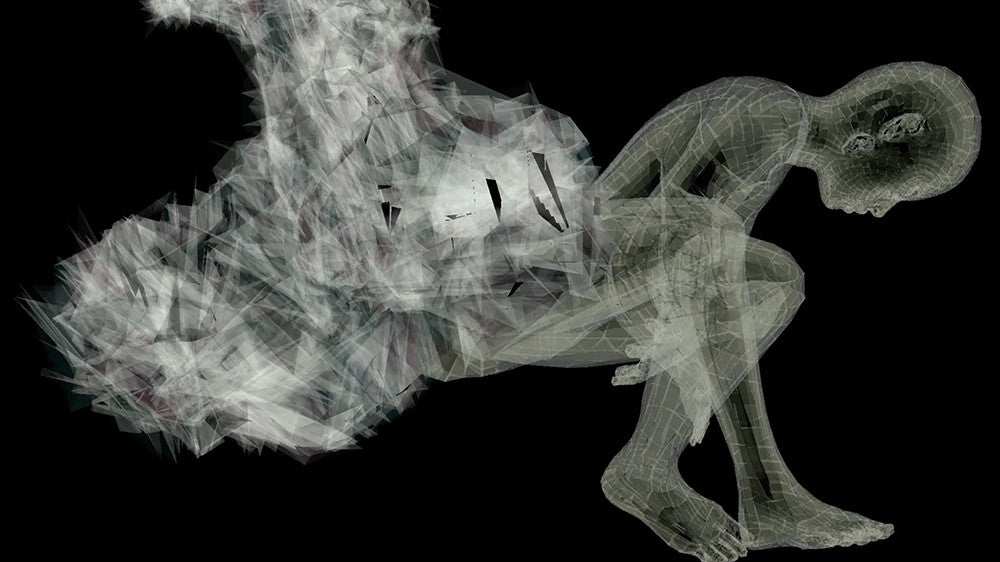
Shadow Glass, made with visual artist Sanglim Han and sound artist Jen Agosta, is one such voidLab collaboration. Resembling a music video, the video shows mesmerizing graphically rendered images of a human form slowly splintering and reshaping from geometric pieces. The accompanying audio incorporates clips from an interview conducted by Xin with Safiya Umoja Noble, author of Algorithms of Oppression: How Search Engines Reinforce Racism. Noble speaks about “technological redlining,” a term she coined to describe how historical redlining has carried over into algorithms and digital media platforms—which are intended to be neutral technologies—and how those problematic practices have created biases pertaining to race, gender, and class.
Xin was inspired to explore the complex relationship between producer and product following interviews with migrant factory workers during a visit to Shenzhen, China in 2015. A series of four videos, Separation Anxiety, depicts each worker acting out the repetitive motions involved in their specific roles: assembling keyboards, packing hair dryers, painting art replicas.
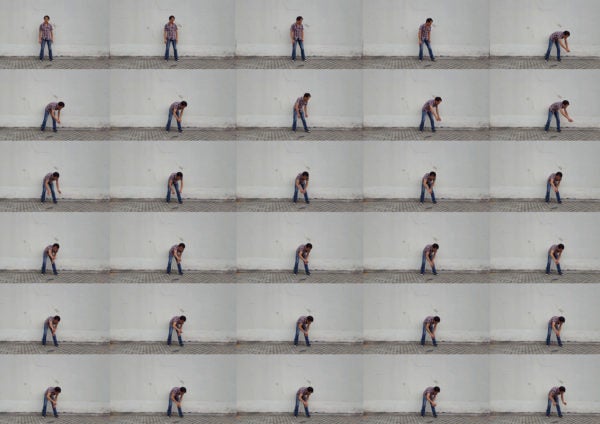
“The assembly line workers establish a highly specific relationship with the object they create, and yet the result of this creation simultaneously render their body invisible,” said Xin. “Factory produced products are meant to be wiped and dusted off, leaving no trace of human production. The moment a new product is packaged and placed onto the shelf becomes this uncanny moment of separation, and I find that relationship to be extremely dehumanizing and filled with anxiety.”
Offering a dissonant mix of utopian and dystopian messages, foxconn.tv serves as a fantasy recruitment tool that both allures and warns potential factory workers. Simulating the vision of Terry Guo, CEO of the Tawainese multinational corporation Foxconn, the world’s largest producer of electronics, the Unity-made machinema reconstructs texts and images from the company’s employee handbook alongside images used to promote China’s push toward Industry 4.0, the buzzy name given to what has been called “the fourth revolution in manufacturing”: digitization. A pleasant, monotone voice encourages the viewer to accompany the thousands of people from across the country who are joining the electronic manufacturing industry. On a more sinister level, the voice also slips in eyebrow-raising statements such as, “Minions are an allegorical device to represent the working class inability to cultivate an identity outside of labor. Foxconn is trust. Foxconn is quality. Foxconn is hope.” This suspicious narration challenges audiences to look beyond superficial, gauzy appeals and scrutinize the harsh realities of industrial production.
Perhaps the most accessible work for Western audiences, Semiotics of Human-Computer Interaction draws attention to the ways in which information about interpersonal communication on mobile devices is being harvested by corporations as profitable data. In the video, the performer acts as a complicit user whose actions are overdubbed with audio of a cellphone’s signature swooshes, dings, and clicks.
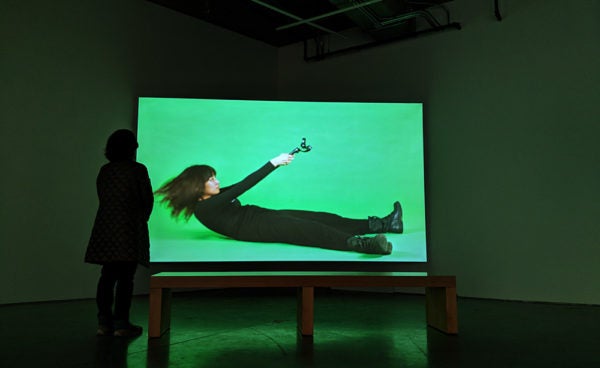
“Digital rights issues are human rights issues, and it’s unethical for these entities to collect our personal information based upon loose and deceptive consent,” said Xin. “I don’t believe we can move towards a radical future by avoiding the usage of network technologies. Instead of viewing data collection and the current infrastructure of corporate-owned social media as an inevitable reality, we should be demanding transparency in the design of these technologies and the policies built around them.”
“Labor in a Single Shot” serves as a starting point for viewers to more deeply investigate the practices of powerful tech companies and consider the inescapable role they play in our lives. In order to ensure individual agency and the security of personal information, Xin’s work urges the public to hold corporations accountable and seek possible alternative visions for an interconnected but ethical future.
“Labor in a Single Shot” was on view in the Dodd Galleries at the University of Georgia in Athens, Georgia, from October 12 through November 9.


